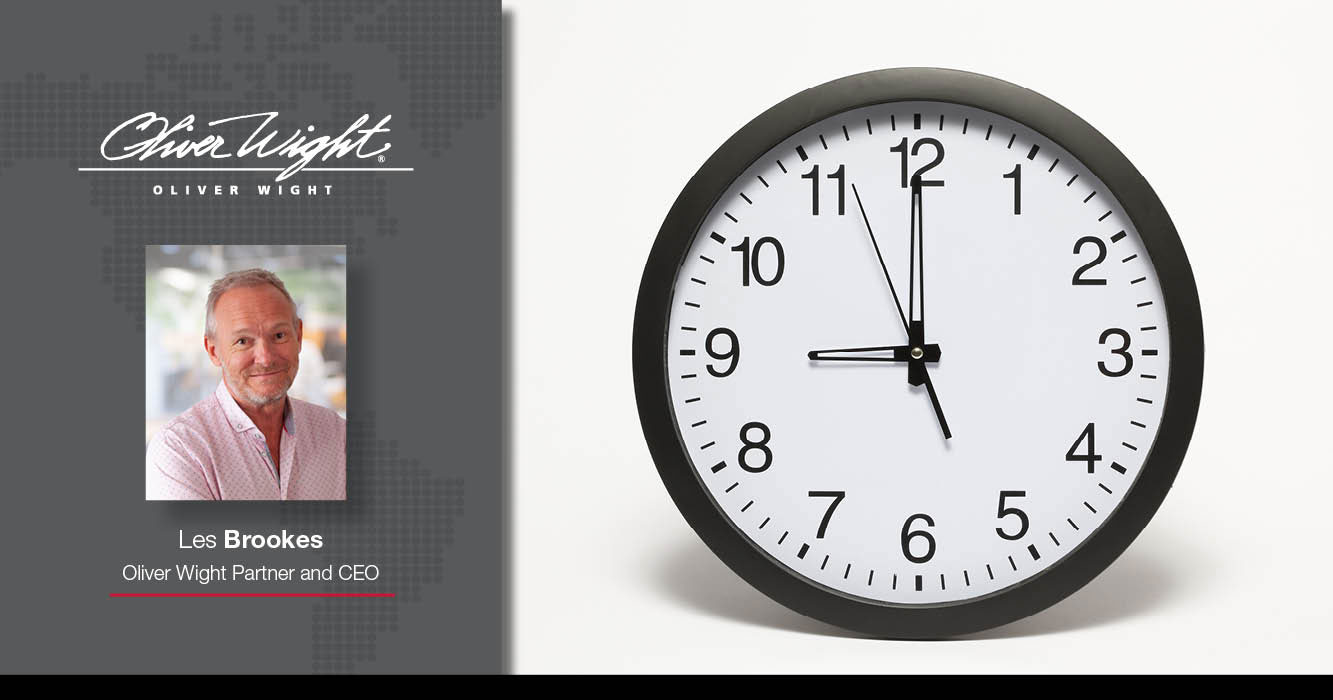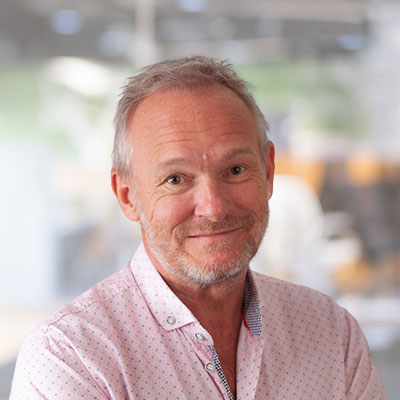Why the time is right for me to step down as Oliver Wight EAME CEO
01 Dec 2022
Blog

Not only are we approaching the end of the year but also the end of an era: specifically, my time as Chief Executive Officer at Oliver Wight EAME LLP. Those close to me will know I've planned to move on from being CEO for the last three or four years. Understandably, recent events have, to an extent, delayed that plan. Now, however, the time is right to step down.
But I won't be stepping away from Oliver Wight completely. In fact, I'll be doing more of the work I love, supporting customers and executive teams in delivering excellence. I find it incredibly rewarding to push people out of their comfort zones to improve performance, and in the new year, I can invest more of my time doing just that as a Partner.
There is something comforting about coming full circle, as I've been involved with Oliver Wight since 2000 and was initially a Partner. I've been in my current – but soon-to-be former – position as CEO and Partner for almost 14 years.
Thinking back to when I joined the company, and comparing it to 2022, there is one striking difference: the technology we used back then. Tech tools that we use today, such as mobile phones, e-mail, and laptop computers, were in their infancy at the start of the millennium.
Sometimes it's easy to forget that the first iPhone was launched only in 2007. When I started with Oliver Wight, there was no such thing as a touch-screen phone. Picture messages, too, were years away. You were lucky if it had the snake game.
In 2001, people relied on overhead projectors for presentations, before moving to PowerPoint and, eventually, the virtual meetings we are all well-versed in today.
Power to the people
It's amusing to look back and consider the giant steps humanity has made regarding technology, which enables us all to do more and better and makes the world a smaller place in terms of communication. But in all my time at Oliver Wight, there has been one constant: supporting people.
Technology has revolutionised systems and working methods, but it is nothing without people. So I have always focused on encouraging people to grow, build their knowledge, and move with the times. I understand how important it is to understand different nascent technologies, which are central to our offering at Oliver Wight. But the need to develop and improve processes while engaging people involved in executing those processes is more critical. It's about providing the right environment for change to happen.
The role of leadership has been more in the spotlight post-pandemic, particularly as organisations struggle with hybrid working, a shift away from command-and-control management, and finding it hard to predict the next challenge or opportunity.
Yes, digital transformation was accelerated in response to the coronavirus crisis, out of necessity in most cases. But it is impossible to maximise the benefits without taking people on that journey and investing in them so they are empowered to understand and use the data-driven insights at their fingertips. And that's down to the leadership team.
I would argue that in the last 20-odd years, leaders have become more aware of their role in driving change. Moreover, the management layer, which is the spine of an organisation, is now stacked with leaders who have a crucial role in decision-making and improving the culture and performance of the business.
I know that the way we work with knowledge transfer and coaching to deliver transformation has helped so many people in their careers and lives at all levels. It’s this that I feel sets Oliver Wight apart; we really do care about people and helping them achieve business results.
Continuous evolution
Another key aspect of my tenure as CEO of Oliver Wight has been practising what we preach about the need for continuous evolution and collaborating with trusted partners. Time and again, we have established alliances – for example, with SAP and, more recently, Board International – to ensure we can meet, deliver and exceed customer expectations and experiences.
Oliver Wight has remained a business owned by practitioners, but we have driven innovation and moved forward together. As someone with a background in motorsport, I know how vital it is not to stand still. The only way to survive and thrive in business is to ensure there is progression.
For this reason, I'm delighted that we have continuity at Oliver Wight – I'll be succeeded by Kirsty Braines, the current Chief Operating Officer, who will chalk up 16 years at Oliver Wight in January. Finally, I'm thrilled to continue to be involved in significant client relationships and innovation to shape our customers' futures.
Author(s)
-
